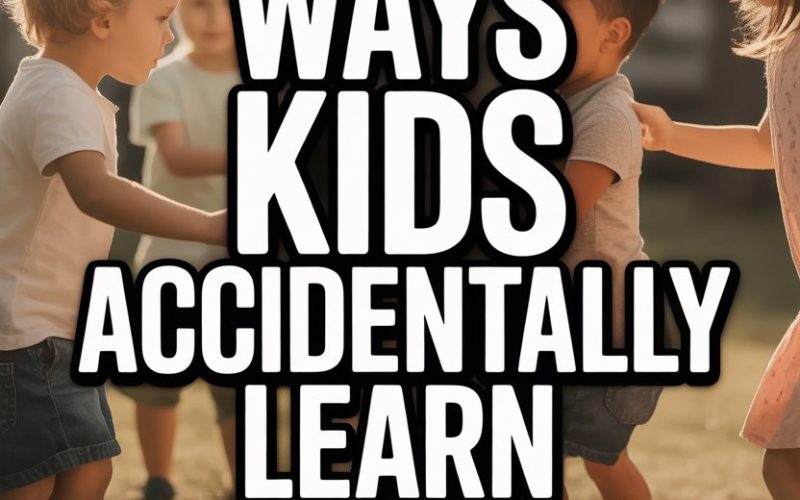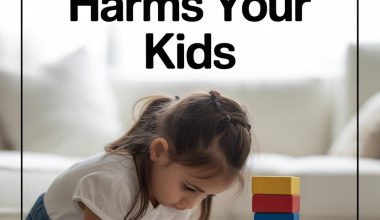Every parent wants their child to grow up resilient, confident, and ready to take on the world—even if it’s just making it out the door with both shoes on.
Yet, sometimes, kids quietly pick up the “life is against me” mindset when we least expect it.
This isn’t something anybody’s jotting down in their parenting goals—but it can sneak into the family routine like glitter after a birthday party.
How does this subtle schooling in victimhood happen? Here are the big six culprits, with no judgment—just a few gentle nudges and a wink.
1. Over-Rescuing and Swooping In
Picture this: your little one struggles with a puzzle, cheeks puffed, eyebrows furrowed. It’s taking longer than getting a toddler into a car seat.
The urge to step in is strong—because, honestly, you need to start the dinner and the sight of frustration is almost as painful as stepping on LEGO.
Now, helping kids is a loving instinct. But swooping in too often teaches them that struggle is intolerable and someone else will save the day.
Kids start to expect rescue at the first sign of discomfort. Before you know it, every minor setback comes with a side of “Why does this always happen to me?”
Psychologist Jessica Lahey, author of The Gift of Failure, points out that children gain confidence and grit from wrestling with life’s tough spots—without instant solutions handed over.
Letting them grapple with small problems, even if it means a few extra tears (or scrambled dinner plans), is actually a gift. You’re showing them that they can handle tough stuff, and that “victim” is not their default setting.
Tempting as it is to fix everything, sometimes the most empowering thing you can do is take a deep breath, offer a supportive smile, and say, “I believe you can figure this out.”
2. Praising Suffering Over Effort
Children are clever little sponges. They notice what earns attention or sympathy.
When the focus lands on how hard something is or how unfair it all feels (cue the drama), kids may learn to broadcast their struggles rather than their efforts.
You’ve probably heard the Oscars-worthy performance after a sibling disagreement: “He always gets the bigger slice!”
If the response is a cascade of sympathy and a rush to fix the injustice, the lesson lands: “Being hard done by is my ticket to love and notice.”
Research in developmental psychology suggests that praising effort and process (“You worked so hard!”) leads to more resilient, less victim-y kids than praising complaints or focusing on unfairness.
Try shifting the family soundtrack from “That’s so hard for you!” to “I saw how much you tried even though it wasn’t easy.”
(Easier said than done when you’re running on caffeine and willpower alone, but every little shift helps.)
3. Modeling Helplessness or Catastrophe
Kids watch their grown-ups like hawks with better PR. When adults habitually say things like, “Why does this always happen to me?” or “I can’t deal with one more thing today!” children absorb those scripts.
Even the most stoic coffee-powered parent can slip up.
Dr. Martin Seligman’s research on optimism shows that children mirror the explanatory styles of their parents. If setbacks get met with dramatic sighs and a sense of doom, kids learn to see life’s hiccups as personal attacks.
Try narrating your own frustrations in a way that signals agency. Instead of “I’m hopeless with technology!” maybe it’s “This app is tricky, but I’ll give it another go.”
You don’t have to fake cheerfulness—just show that grown-ups can face obstacles without crumbling.
4. Over-Identifying with Problems
There’s empathy (the world could use more), and then there’s adopting your child’s struggles as your own.
When parents blur the line between support and over-identification, kids can internalize the belief that their difficulties are central to who they are, not just something happening to them.
Picture a child who struggles with maths.
Parents naturally want to help, but comments like “Maths is hard for our family,” or “We’re just not numbers people” nudge the child to embrace a fixed, helpless identity. Suddenly, it’s not just a tough subject—it’s destiny.
Instead, try helping your child see challenges as temporary and solvable. “Maths can be tricky, but you’re learning new things every day” leaves the door open for growth.
This subtle shift keeps victimhood from becoming a badge of honour.
5. Shielding Kids from Consequences
Nobody loves seeing their child face the fallout of a bad choice. Maybe your little one forgot their lunch for the third time this week.
There’s a tug-of-war between wanting to drive back to school and wanting to teach a lesson in responsibility.
Rescuing kids from every consequence builds a sense that life is something that happens to them, not something they influence. Over time, they may feel powerless, assuming that someone else controls outcomes.
Parenting expert Dr. Laura Markham encourages parents to allow natural consequences to do some of the teaching.
If a child leaves a project until the last minute and has to face the teacher’s sigh, they learn firsthand about the results of their decisions. These small discomforts are training wheels for bigger life skills.
No parent wants to see their child go hungry, but occasional “learning lunches” (even if it’s just an apple from the school office) can be surprisingly educational.
6. Stuck in the Blame Game
The “It’s not my fault!” chorus might be the unofficial anthem of childhood. When this tune becomes a regular feature, it’s time to check: Is blame being modelled or tolerated at home?
If grown-ups are vocal about blaming others—traffic, teachers, weather, relatives—kids follow suit.
When blame is the go-to strategy, children sidestep responsibility (“The teacher was mean!”), gradually reinforcing the sense that life’s outcomes are always out of their hands.
The antidote? Help kids develop a habit of reflection and personal responsibility. Instead of leaping in to defend, ask questions that encourage thinking: “What could you do differently next time?” or “How might you fix this?”
When blame gets swapped for curiosity, the victim script loses its appeal.
Cheeky tip: Next time you catch yourself blaming the WiFi for your online shopping habit, give yourself a gentle nudge too.
Helping Kids Reclaim Their Power
Every family slips into a victimhood rut now and then—usually when everyone’s tired, snackless, and the WiFi is slow.
The trick isn’t striving for perfection, but gently nudging things back on track. Small changes in language, a little letting go, and a pinch of trust go a long way.
You’re not just raising kids who can tie their shoes (eventually). You’re raising future adults who can face life’s snags with a raised eyebrow and a plan, not just a cry of “It’s not fair!”
That’s the kind of resilience that carries them through playground squabbles, spelling tests, and the mysterious disappearance of yet another left sock.
Now, where did your other sock go?




